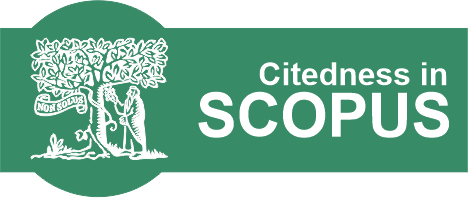Using Momo English Game To Increase Students’ Motivation In English Language Learning
Keywords:
Momo English Game, Learning Motivation, Students’ Perception, Learning Media, English LanguageAbstract
This study aimed to determine whether the Momo English Game can increase students' motivation in learning English and explore their perceptions of its use. A quantitative method with a pre-experimental design was applied, involving 15 seventh-grade students at SMPN 2 Suli selected purposively. Data were collected using a motivation questionnaire based on a four-point Likert scale and student interviews.
The results showed an increase in students’ motivation, with average scores improving from 2.78 (pre-test) to 3.51 (post-test). Interview findings revealed that students had positive perceptions, stating that the game made learning more enjoyable and helped them understand vocabulary more easily. It is concluded that Momo English Game positively influences both students’ motivation and perception in English learning
References
Abdul Jalil Jum’uatullaila, Buhari, Syahrir L, & Sam Hermansyah. (2025). The Influences of Using Quizizz in Student’s English Learning Outcomes. INTERACTION: Jurnal Pendidikan Bahasa, 12(1), 1030–1040. https://doi.org/10.36232/interactionjournal.v12i1.3526
Andriani & Pramudito (2022). The Effectiveness of Using Games in Learning English in the 9th Grade. Yogyakarta: Universitas Gadjah Mada.
Ardhini, S. (2023). Using Likert Scale for Measuring Motivation in Language Learning. Depok: Universitas Indonesia.
Brayman, A. (2016). Structured Interviews: A Systematic Approach to Data Collection. Thousand Oaks, CA: Sage Publications.
Chomsky, N. (1965). Aspects of the Theory of Syntax. Cambridge, MA: The MIT Press.
Creswell, J. W. (2014). Research Design: Qualitative, Quantitative, and Mixed Methods Approaches (4th ed.). Thousand Oaks, CA: SAGE Publications.
Gay, L. R. (2021). Classification of Students’ Motivation in Learning. Jakarta: Jurnal Pendidikan dan Evaluasi.
Gee, J. P. (2003). What Video Games Have to Teach Us About Learning and Literacy. New York: Palgrave Macmillan.
Hamzah B. Uno. (2011). Teori Motivasi Dan Pengukurannya: Analisis Di Bidang Pendidikan. Jakarta: Bumi Aksara
Lunenburg, F. C. (2011). Motivation in Learning Activities: The Role of Intrinsic Motivation. Texas: International Journal of Scholarly Academic Intellectual Diversity, 13(1), 1–6.
Miles, M. B., & Huberman, A. M. (1984). Qualitative Data Analysis: A Methods Sourcebook. Beverly Hills, CA: Sage Publications.
Nunan, D. (1989). Task-Based Language Teaching. Cambridge: Cambridge University Press.
Piaget, J. (1952). The Origins of Intelligence in Children. New York: International Universities Press.
Prensky, M. (2001). Digital Game-Based Learning. New York: McGraw-Hill Education.
Purwanto (2017). Factors Influencing Learning Motivation in Language Education. Yogyakarta: Andi.
Rizki Nurhan dan Rahmat (2021). Motivation as an Internal Drive in Learning Activities. Jakarta: Jurnal Pendidikan dan Psikologi, Vol. 12, No. 4, Halaman 201-210.
Ryan, R. M., & Deci, E. L. (2000). Self-Determination Theory: Intrinsic and Extrinsic Motivations in Learning. New York: Contemporary Educational Psychology, 25(1), 54–67.
Rezki Utami Muslimin, Ibrahim Manda, Andi Sadapotto, Syamsu T, & Sam Hermansyah. (2025). Using Text Paraphrasing Strategy to Improve Student’s Reading Comprehension at Eight Class of SMP Negeri 1 Panca Rijang. INTERACTION: Jurnal Pendidikan Bahasa, 12(1), 1137–1146. https://doi.org/10.36232/interactionjournal.v12i1.3714
Sherlan Argeta, Sam Hermansyah, Nur Hikmah, & Isumarni. (2025). Strategies for One-On-One Interaction to Enhance English Speaking Skills among EFL Students at MTS YMPI Rappang. INTERACTION: Jurnal Pendidikan Bahasa, 12(1), 1201–1211. https://doi.org/10.36232/interactionjournal.v12i1.3833
Sari & Jannah (2023). Increasing Motivation to Learn English Using Momo English Game at SD Negeri 4 Malang. Malang: Universitas Negeri Malang.
Skinner, B. F. (1957). Verbal Behavior: A Behaviorist Theory on Language Learning. New York: Appleton-Century-Crofts.
Soraya, N. (2023). The Goals of English Education for the Younger Generation. Bandung: Universitas Pendidikan Indonesia.
Suhartini (2019). Types of Motivation That Influence Students in Learning English. Surakarta: Universitas Muhammadiyah Surakarta.
Siti Nur jannah (2023). Engaging and Enjoyable Learning Approaches to Increase Students' Motivation to Learn English. Yogyakarta: Universitas Negeri Yogyakarta.
Sugiyono (2017). Metode Penelitian Kuantitatif, Kualitatif, dan R&D. Bandung: Alfabeta.
Widyanti & Sugiyanto (2023). The Effect of Using Educational Games on the Motivation to Learn English among Junior High School Students. Semarang: Prosiding Seminar Nasional Pendidikan, Universitas Negeri Semarang.
Wang, A. I. (2015). Motivation Indicators in Educational Games: A Questionnaire-Based Approach. Bergen, Norway: International Journal of Game-Based Learning, 5(1), 45–57.
Vygotsky, L. S. (1978). Mind in Society: The Development of Higher Psychological Processes. Cambridge, MA: Harvard University Press.
Downloads
Published
How to Cite
Issue
Section
License
Copyright (c) 2025 Hapzah, Buhari, Isumarni, Nur hikmah

This work is licensed under a Creative Commons Attribution-ShareAlike 4.0 International License.



































